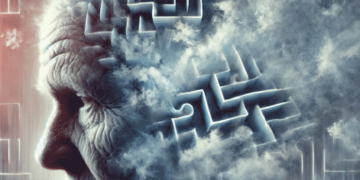It can be said, without fear of exaggeration, that the world has become psychologized, any analysis of reality is based on elements of the mind. What could be the keys that explain this phenomenon?
e are in the psychological age. At the end of the century it can be affirmed, without fear of exaggeration, that the world has become psychologized. Any analysis of reality worth its salt will rest in the background on psychological elements. Why? What has happened for this marked change to take place? What could be the keys that explain this phenomenon? You can’t give a simple answer that summarizes everything that’s going on. They are the factors that have originated this installation in the field of psychology of a large part of humanity.
To relate this we must point out the lights and shadows of our current era. We have to have and must have positive and negative. On the one hand, there are the great advances achieved, the peaks to which man has acceded in recent years. The take-off of modern science; the accelerated technification, which has allowed us to conquer hitherto unsopected goals; the computer revolution, which is able to simplify data sorting and processing systems. We must also underline the so-called communications revolution: there are no longer distances in the world and in a few hours we stand at the other end of the earth; this was just a few years ago something unthinkable.
Isms
But in today’s Western culture there are important shadows. Some unsopected, surprising. The most important isms are the following: on the one hand, materialism: only what is tangible, which is touched and seen, counts; it is like the almost ultimate destiny of the society of abundance. Next to it is aligned hedonism, which puts pleasure and well-being as a fundamental flag. Both give us a very unique mix. Only the possession and enjoyment of material goods that, however abundant they may be, always end up leaving the human heart dissatisfied. From there will emerge an experience from nothing, which is very close to what the experience of anxiety supposes. Once the human being materializes in his deepest aspirations, he will end up sliding towards a new decadence.
We must also emphasize, as negative points, the permissiveness: there are no dimensions, nor forbidden places; you have to dare to do everything and try everything, browse all the nooks and crannies of human intimacy. We must go further and further: reach the unheard of and surprising, bordering previously forbidden territories, and thus be increasingly bold and innovative. It is also important the relativism that has been arriving marked by a subjectivism: all judgments are floating, everything depends on something, as in a kind of chain of connections; everything is relative. Thus there is an absolutization of the relative.
:format(jpg)/https%3A%2F%2Ff.elconfidencial.com%2Foriginal%2Ffa5%2F50b%2F630%2Ffa550b63068bf5596a1e5e712de94516.jpg)
:format(jpg)/https%3A%2F%2Ff.elconfidencial.com%2Foriginal%2Ffa5%2F50b%2F630%2Ffa550b63068bf5596a1e5e712de94516.jpg)
Also, consumerism: this is a new form of liberation. We are destined to consume: objects, superfluous things,information, magazines, travel relationships; it’s about having things. The passion to consume. There is an excess of claims, pulls, stimuli around us,and we say yes to almost all of them. From here arises a new man: blunted, full of things, but empty internally. It will follow the route of anxiety, which will end in a special form of melancholy and indifference.
And then another fact jumps in this inventory of factors: dehumanization. It has come from the hand of science and technology. The technified man becomes blurred, loses support and consistency, and comes to postpone the value of the human being as such. Never throughout history have we cared so much about man as we do now and, at the same time, has never been this so forgotten, so objectified, so reduced to object.
- Disorientation, that is, not knowing what to expect, lacking firm criteria, floating without a compass, gradually drifting.
- The inversion of values, that is, a new formula for living, daring to design life with brilliant and uncommitted schemes, but without force, in a kind of circus exercise similar to the ‘most difficult yet’ but for the sake of a loud and loud freedom.
- Thirdly, the spiritual void, which entails neither tragedy nor apocalypse.
As we can see, anxiety is emerging from here and there in this analytical journey. Although there are more aspects that characterize the Western culture of our days and that cannot be overlooked. It is necessary to mention the exaltation of eroticism and pornography inflated and à la carte: the human being is degraded, debased.
At the end of all this there is a void that is weariness and weariness of everything trivial, reaching almost the limit of the destruction of the most human of man.
















































































